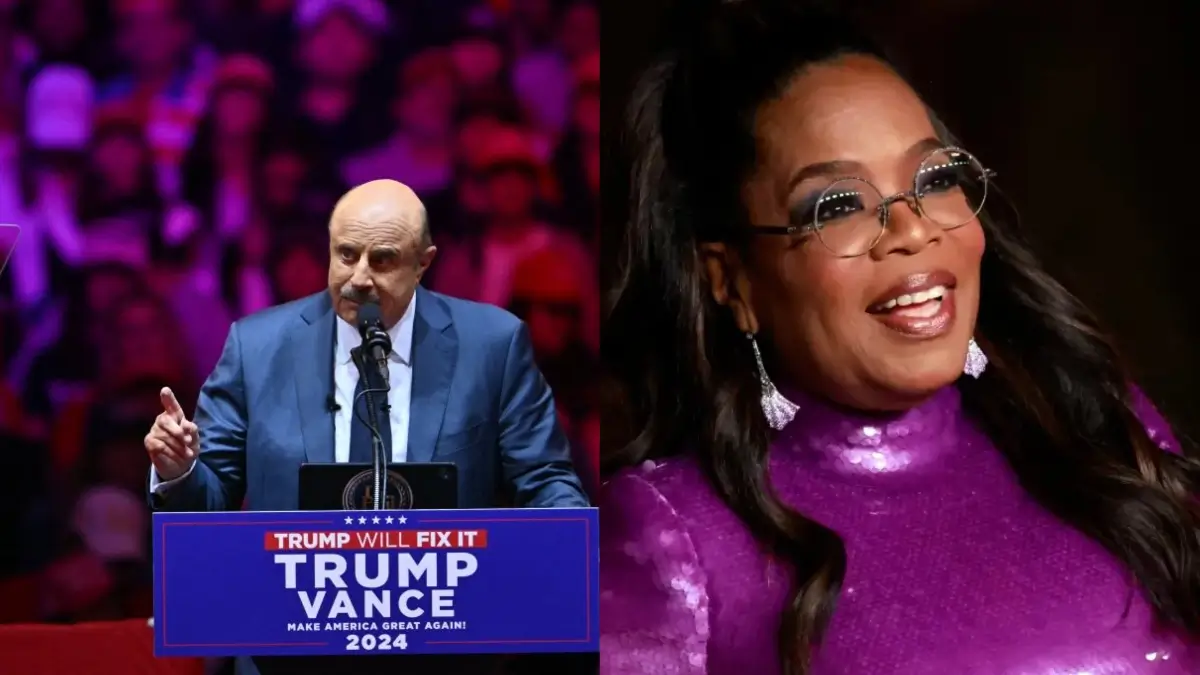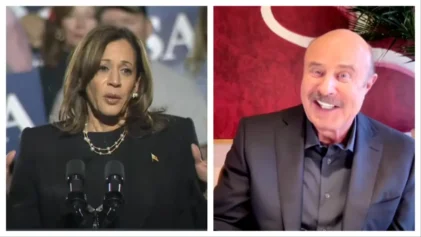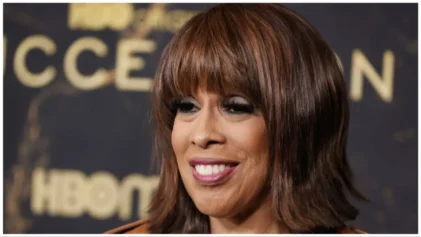Dr. Phil, who found fame and fortune after Oprah Winfrey introduced him to her vast viewing audience, is catching heat for remarks made Sunday at Republican presidential nominee Donald Trump‘s rally in New York City.
Challenging those who call Trump “a bully,” the TV personality, whose full name is Phil McGraw, launched a full-throated defense of the former president.
“To be a bully, there had to be an imbalance of power,” McGraw told the overflow crowd at Madison Square Garden. “And when there’s not, it’s just called a debate. And he’s just better at it than anybody else.”

However, his comments against efforts to increase diversity, equality, and inclusion in the public square drew the biggest blowback.
“This country was built on hard work, added value and talent,” McGraw told the crowd at Madison Square Garden while touting his new television network, Merit Street Media. “Not on equal outcome. Not on DEI.”
One commenter on X asked, “What merit did he have when Oprah made him famous. F—ing loser.”
Dr. Phil wasn’t the only speaker at the rally, described by The New York Times as “a closing carnival of grievances, misogyny and racism,” to court controversy.
Trump senior adviser Stephen Miller, who has championed mass deportations of undocumented workers, said the former president will stand up for the nativist notion that “America is for Americans only.”
Former Fox News host Tucker Carlson mocked Democratic nominee Kamala Harris’ heritage, saying she was bidding to become the nation’s “first Samoan-Malaysian, low IQ former California prosecutor ever to be elected president.” The vice president was born to an Indian mother and a Jamaican father.
Another speaker called Harris the “Antichrist,” while a third ridiculed her as a prostitute with “pimp handlers.”
While Dr. Phil steered clear of ugly attacks against Harris, critics seized upon his ignorance of history.
Keith Boykin, a former aide to President Bill Clinton, reminded McGraw that America was built by “unpaid Black people who were exploited by rich white guys who took the credit.”
The NAACP echoed those comments in a post on X: America “was absolutely built on hard work …on the backs of Black, Brown, and lmmigrants from all across this WORLD! Many of which who were forced to do so! SLAVERY.
“Let us know when you’re ready to tell the WHOLE story,” the post continued.
Others said McGraw wasn’t telling the whole story about his rise to success.
“Isn’t he only famous because of a black woman?” asked one commenter on X.
Some criticized the media mogul for not properly vetting McGraw before bringing him on her platform and contributing to his rise.
“I like Oprah Winfrey, but I’ll never forgive her for making Dr. Phil famous,” one X user wrote. “She may never forgive herself,” another person replied.
McGraw was a self-help speaker and psychologist who founded a trial consulting firm while still based in Texas. He met Winfrey in 1996 after the media mogul hired McGraw’s firm to help in her defense against a defamation lawsuit brought by the cattle industry.
Impressed by his work, Winfrey invited McGraw to appear on her talk show. Those regular appearances led to his own syndicated program, “Dr. Phil,” which would soon become a household name.
“You guys aren’t dumb,” he told the crowd Sunday. “You don’t need to be told what to think. You just need the facts, and you’re here because you have the facts, right? You’re here because you recognize when legacy media edits answers and gives you what they want you to hear instead of the truth, and when they start editing their candidate’s answers, they’ve lost their moral compass.”
Playing to the victim mentality that’s become so popular with the MAGA set, Dr. Phil railed against cancel culture, implying that woke mobs would soon be coming for him.
“And I would love to say it’s equal on both sides, but I’ll guarantee you when Beyoncé, George Clooney, De Niro and Lizzo come out and say they’re for Kamala Harris … did you read anything or hear anything in the media criticizing it?” he said. “No, but you watch what happens tomorrow morning when people find out I came here to talk to you. You say this in Hollywood and all of a sudden, you ain’t got a job. Problem is, I don’t need one.”


